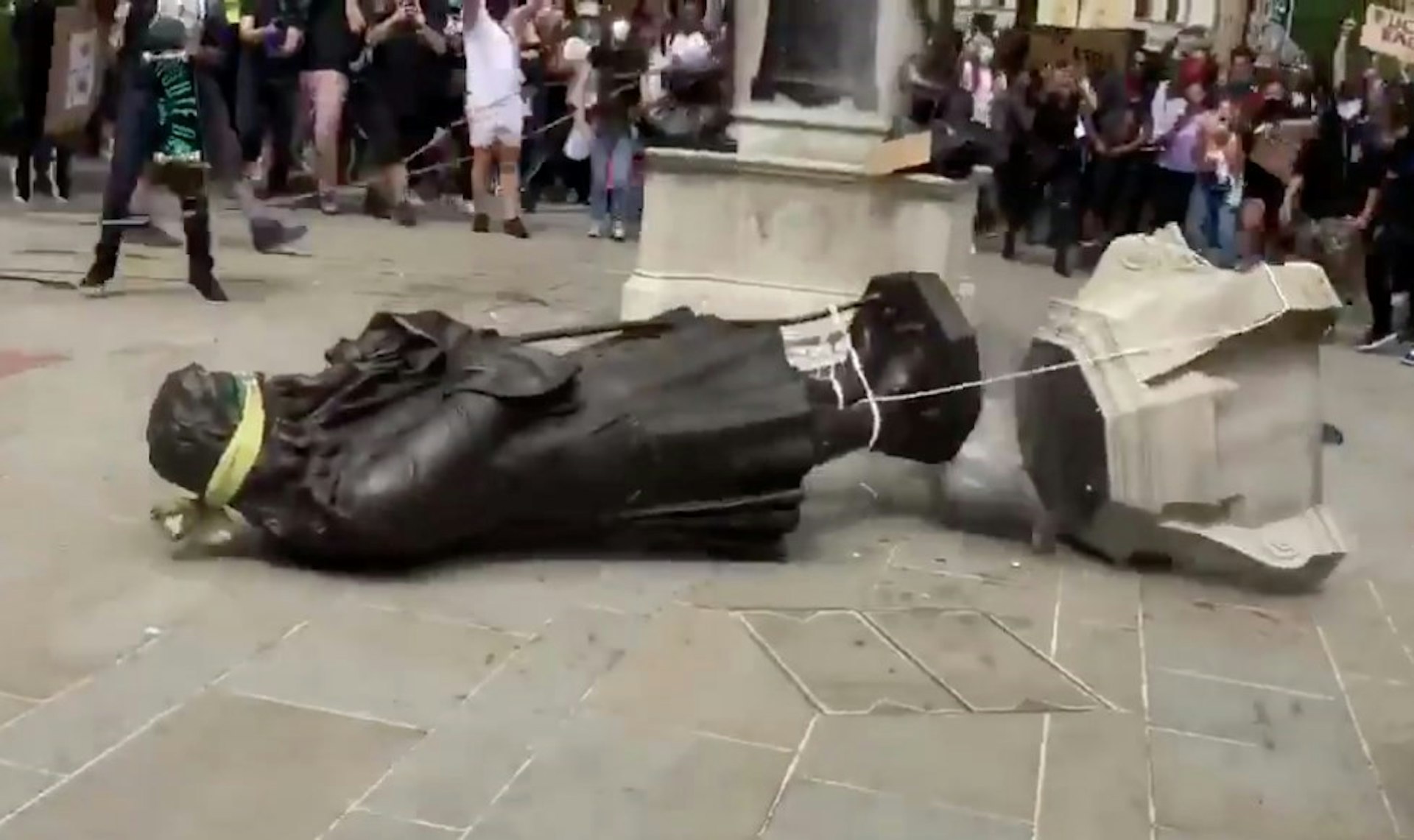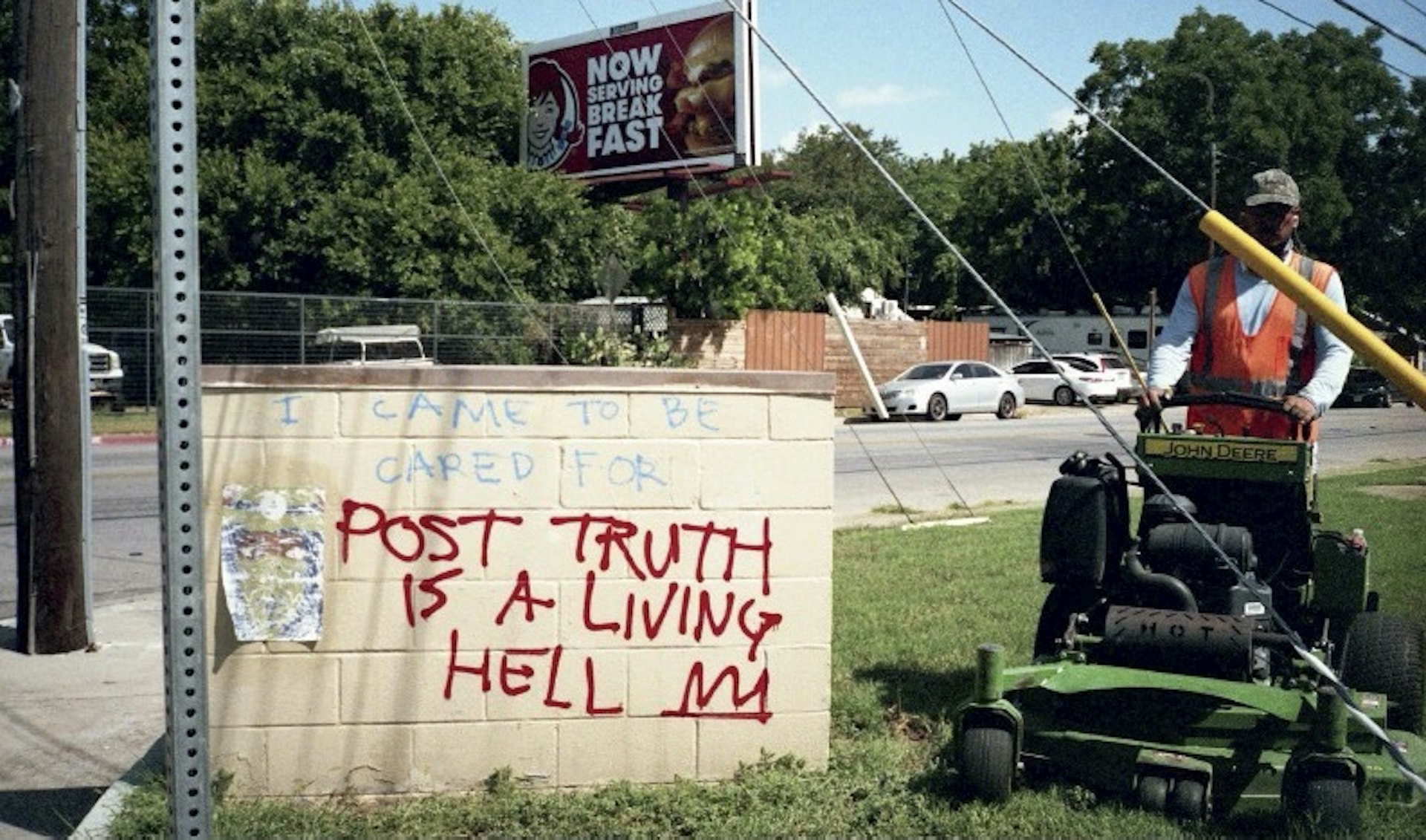
As a Black Bristolian, the Colston verdict is bittersweet
- Text by Aaliyah Miller
- Photography by Via Twitter @AlAviram
On 7 June, 2020, Bristol city centre, an area I’ve walked through countless times, became a scene where history was made. Cheers erupted when the statue of Edward Colston – a man responsible for transporting over 80,000 Africans into slavery – was pulled down from its plinth by protestors. These were demonstrators who had taken to the streets in solidarity with the Black Lives Matter movement, which had taken the US by storm following the murder of George Floyd by police officer Derek Chavin.
Around 10,000 people gathered in Bristol on that monumental day, as citizens demanded change while holding their city to account. Bristolians demanding justice is nothing out of the ordinary; the city has been home to many monumental protests, such as the 1963 Bristol Bus Boycotts and the 1980 St. Pauls riots. Political rebellion unites citizens and gives the city its legacy as a place that takes democracy into the hands of the people.
Four of those people present at the protests that day – Rhian Graham, Milo Ponsford, Jake Skuse and Sage Willoughby – would go on to be charged with criminal damage for pulling down the statue of Colston that once haunted Bristol city centre. The charge came as a shock for many Bristolians, myself included, who believed the removal of the statue was long overdue following several unsuccessful petitions to the council dating back years. Was everyone not happy that this shrine dedicated to such an evil man had finally been removed?
The trial began on 13 December 2021 and, not even four weeks later, a ‘Not Guilty’ verdict was returned by the jury. The four defendants were elated, as were those who supported them. But my own happiness was tinged with shock: I’d wanted the protestors to be acquitted, but I didn’t actually expect it to happen. Perhaps my scepticism was due to my lack of faith in the British justice system to do the right thing, shaped by my experiences as a Black woman. Indeed, there is good reason to feel this way: research on the experiences of Black people in the justice system tells people from ethnic backgrounds to expect negative outcomes when it comes to dealing with the law.
Closing speech by the defence 🔥 “Colston’s statue normalised abuse. It condoned the shrugging acceptance of racism. It celebrated the achievements of a racist mass murderer. The continued existence of that statue was a racist hate crime.” 🔥 https://t.co/zywZit8UFX pic.twitter.com/ykd4gi4M4i
— Daniela Battistella (@DBattistella) January 5, 2022
The Ministry of Justice’s 2016 report on BAME disproportionality in the Criminal Justice System in England and Wales explains that Black men are more than three times more likely to be arrested than white men, while both Black and mixed ethnic women were two times more likely to be arrested than white women. As well as this, it states that Black, mixed ethnic, and other ethnic youth – both male and female – are more likely to be proceeded against at Magistrates’ court. Young Black males are almost 60 per cent more likely than young white males to be committed to the Crown Court for trial.
Of course, the acquittal of the Colston Four warrants celebration. The jury demonstrated that direct democracy and freedom of protest will be respected. However, it is worth questioning whether if those on trial were Black, the outcome would have been different. The Colston Four used their white privilege to demonstrate allyship to a community they boldly claimed to love and respect. But if they weren’t white, would they have been hailed as “heroes” by the public and media, as opposed to vandals or thugs? Would the jury have supported them without their white skin? Would the law have allowed for them to walk free with no repercussions, or would it have demanded they be made an example of?
Legislation such as the Police, Crime and Sentencing Bill criminalises protests that cause “serious annoyance”, bringing fear for Black people who are already so greatly discriminated against by the criminal justice system. This isn’t the only worrying piece of legislation passed by the Tory party in recent months that threatens those who dare to fight for what they believe is right. The Nationality and Borders Bill is another piece of legislation which draws a line between those who are respected by the law and those who aren’t. The bill’s main aim is to try and limit migrants that cross the English channel, often escaping horrors at home.
This isn’t the only draconian outcome it brings. The legislation also gives the Home Office increased powers to strip a person of their citizenship, without even having to inform them. The Bill also means that a person can be left stateless, as the only justification needed to revoke British citizenship is that the Home Secretary has “reasonable grounds for believing” that they could obtain alternative citizenship for another country.
This brings fear for children of first-generation immigrants, whom, through their parents, have the right to obtain a second citizenship. Would this be used by the Home Office as a reason to revoke my British citizenship if I stood in protest for something I believed? Would my legal right to a Jamaican passport be regarded as “reasonable grounds”?
The trial of the Colston Four is one for the history books. Their boldness to stand up for what they believed in without remorse was admirable; they deserve respect for standing on the right side of history. The verdict was monumental. But the feeling still persists: would there have been a decision worth celebrating if the Colston Four weren’t white?
Follow Aaliyah Miller on Twitter.
Enjoyed this article? Like Huck on Facebook or follow us on Twitter.
